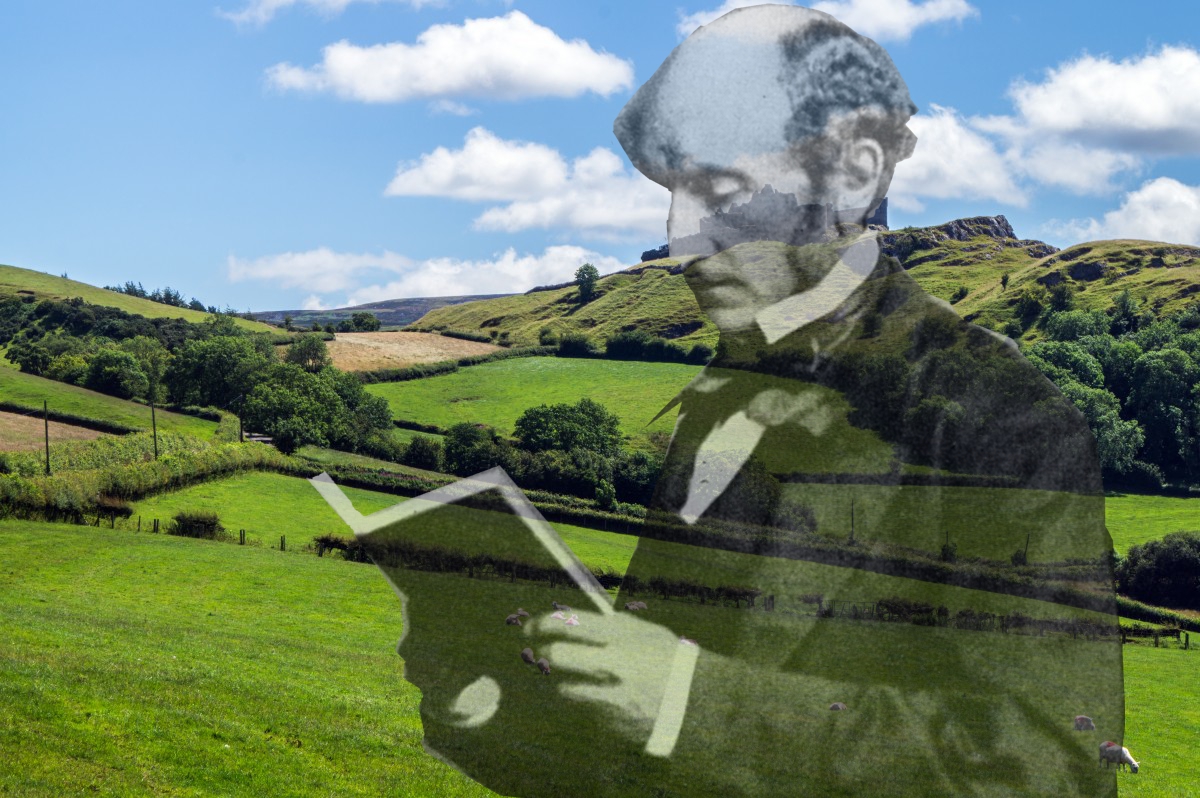John Stuart Mill – The birth of a theory about happiness
John Stuart Mill (1806-1873) was an important British philosopher who has been especially influential in the fields of Ethics, Political Philosophy, and Social Theory. He was also a parliament member, and an advocate of political freedom, women’s right to vote, and liberal social reforms. A central idea in his ethical and political philosophy is the value of happiness. Happiness is the main criterion for ethical and political rightness.
The following passage is taken from the section “Crisis in my mental history” from Mill’s Autobiography. Mill describes here how, at the age of 20, he fell into a long depression. What pulled him out of this depression was an autobiography by the French writer Marmontel. This experience changed Mill’s philosophy of happiness. He now understood that in order to be happy you should not think much about your happiness but have a goal in life, and you should cultivate your feelings and inner world. Both of these ideas can be seen in his philosophical writings.
«It was in the autumn of 1826. I was in a dull state of nerves, such as everybody is occasionally liable to, unsusceptible to enjoyment or pleasurable excitement, one of those moods when what is pleasure at other times, becomes insipid or indifferent… […] I seemed to have nothing left to live for. At first I hoped that the cloud would pass away of itself; but it did not. […]
I frequently asked myself, if I could, or if I was bound to go on living, when life must be passed in this manner. I generally answered to myself that I did not think I could possibly bear it beyond a year. When, however, not more than half that duration of time had elapsed, a small ray of light broke in upon my gloom.
I was reading, accidentally, Marmontel’s Mémoires, and came to the passage which relates his father’s death, the distressed position of the family, and the sudden inspiration by which he, then a mere boy, felt and made them feel that he would be everything to them—would supply the place of all that they had lost. A vivid conception of the scene and its feelings came over me, and I was moved to tears. From this moment my burden grew lighter. The oppression of the thought that all feeling was dead within me was gone. I was no longer hopeless. […] I gradually found that the ordinary incidents of life could again give me some pleasure; that I could again find enjoyment, not intense, but sufficient for cheerfulness, in sunshine and sky, in books, in conversation, in public affairs; and that there was, once more, excitement, though of a moderate, kind, in exerting myself for my opinions, and for the public good. Thus the cloud gradually drew off, and I again enjoyed life; and though I had several relapses, some of which lasted many months, I never again was as miserable as I had been.
The experiences of this period had two very marked effects on my opinions and character. In the first place, they led me to adopt a theory of life, very unlike that on which I had before I acted […] I never, indeed, wavered in the conviction that happiness is the test of all rules of conduct, and the end of life. But I now thought that this end was only to be attained by not making it the direct end. Those only are happy (I thought) who have their minds fixed on some object other than their own happiness; on the happiness of others, on the improvement of mankind, even on some art or pursuit, followed not as a means, but as itself an ideal end. Aiming thus at something else, they find happiness by the way. […]
The other important change which my opinions at this time underwent, was that I, for the first time, gave its proper place, among the prime necessities of human well-being, to the internal culture of the individual. […] The cultivation of the feelings became one of the cardinal points in my ethical and philosophical creed. And my thoughts and inclinations turned in an increasing degree towards whatever seemed capable of being instrumental to that object.
I now began to find meaning in the things, which I had read or heard about the importance of poetry and art as instruments of human culture.»
Posted in December 2017
